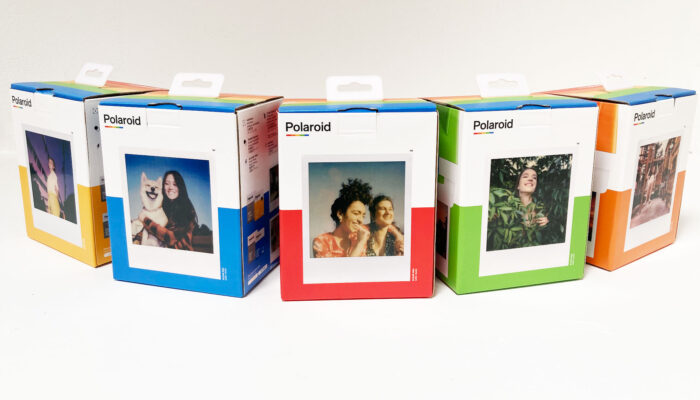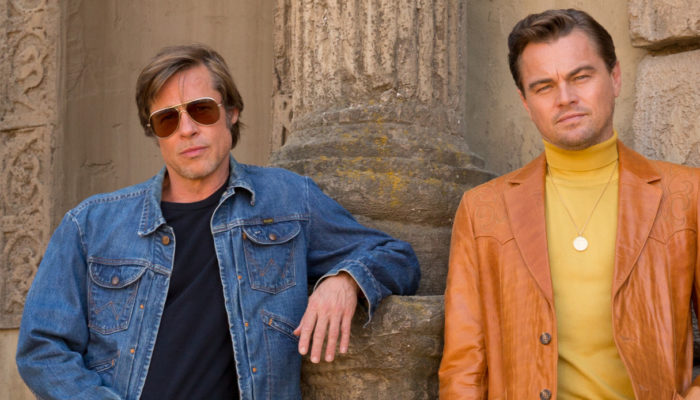London Jazz, The Capital’s Latest Scene
Words by Ammar Kalia
Photography by Danny Lowe
Since the Southern Syncopated Orchestra first took to the London stage in 1919, jazz has been a key component of the English capital’s musical identity. The influx of American improvisatory methods spawned a British era of bebop, exemplified by the playing of Ronnie Scott and John Dankworth in the 1950s, and later in the ‘60s and ‘70s emigration from ex-colonial territories gave rise to performers such as the Jamaican saxophonists Joe Harriott and Harold McNair.
Yet, despite this vibrant strain of musical self-expression taking root in venues like Scott’s eponymous club and The Jazz Centre Society, as the century progressed the music became more of a marginal pursuit. By the 1990s, attendance at jazz concerts accounted for just under 6% of the adult population, compared to almost 12% for classical music. It seems jazz was no longer ‘cool’.
Last year the saxophonist and bandleader Shabaka Hutchings wrote a piece lamenting the lack of representation for UK jazz. He took issue with the MOBO Awards’ neglect of a new wave of British jazz artists in favour of American safe-bets Esperanza Spalding and Cory Henry. While awards nominations do not necessarily correspond to talent, the MOBO choice felt symptomatic of a larger historical trend of the UK jazz scene being denied access to a wider audience platform. Or so it seemed.

Moses Boyd at Total Refreshment Centre
In fact, recent years have seen a flowering of new jazz talent coming out of London – South London in particular – and one that is only now attaining mainstream recognition. This movement is characterised by a sense of self-sufficiency and community, a forward-thinking pursuit of creative principles with a disregard for generic segregation and, instead, a return to groove-based collaboration.
One of the acts that Hutchings mentions in his piece is drummer Moses Boyd, a key proponent of this new sound. Despite the MOBOs potential failings in their 2016 nominations, Boyd, along with the saxophonist Binker Golding, won their award for Best Jazz Act in 2015. He has since gone on to release last year’s club-focused 12”, Rye Lane Shuffle, as well as a follow-up spiritual jazz LP with Golding, Journey to the Mountain of Forever, and a forthcoming EP, Absolute Zero, a deeper dive into the grime and club influences underlying his jazz-focused sound. Boyd, who grew up in Catford, cites London as a main influence in the production of such a varied body of work. “There’s so much history and culture within London and it’s all around you”, he explains, “I’m fortunate to have grown up here and to have been exposed to so many different styles of music while doing the rounds at jams sessions. I was able to watch and meet touring musicians like Wynton Marsalis, Roy Haynes and many other legends pass through places like Ronnie Scott’s.
“I’d go with other musician friends of mine and we’d always be the youngest people in the room by about twenty years; I mean, when was the last time anyone saw ten young black kids from South London watching Wynton Marsalis?”.
It was not only the draw of major names to London that allowed for Boyd’s musical development but the workshops that he would attend where he met many of his current collaborators, such as the Jazz Ensemble at Camden’s Roundhouse and the Tomorrow’s Warriors program run by bassist Gary Crosby. “There must have been something in the water!”, Boyd states of his time learning his chops a decade ago, since while his peers were getting into grime and garage, others like “Theon Cross, who plays in my band now and who I’d known since I was a kid, was getting into jazz, as was [saxophonist] Nubya Garcia. There was a really good scene bubbling in South London, and you’re still spoiled for choice in the city on a regular basis; it’s hard to compare it to anywhere else”.

Theon Cross at Total Refreshment Centre
“There’s just more variation in terms of the musical workshops and gigs available in London,” Garcia says. Having released her debut solo LP Nubya’s 5ive in May, selling out in two days, Garcia’s music and live playing takes a similarly wide-ranging approach as Boyd’s. From the keening tenor melodies of 5ive to her spiritual afro-jazz work with the group Maisha, and then to the all-female harmonic funk of her playing with Nerija, London’s diverse musical imprint breathes through her saxophone. In fact, her music is so dependent on context and bandmates that Garcia is wary of applying the umbrella term ‘jazz’ to it. She explains, “if you’re describing ‘jazz’ as an improvised music, then yes, I play jazz. If you’re talking about jazz in the 1940s or referring to 1920s jazz – I don’t play that. I would prefer if people would think about what I’ve taken from jazz and put into my music and what it is about my music that makes it jazz; how does it connect to that history?”.
Collaboration is key, in jazz history and in the formation of this “scene” as tuba player Theon Cross puts it. For Cross, a good creative partner has “got to be open, since when you come up with an idea, you have to be with people who understand how to make it work and who can give you the confidence to turn it into something better”. Cross counts Boyd, Garcia and even Kano as his collaborators, having released his debut EP, Aspirations, in 2015 with a second offering slated for later this year. Growing up in Catford with Boyd, it was physical proximity that allowed for both players to hone their craft. Despite the internet now allowing groups to connect from all over the world it’s “when you hang, that’s where the ideas begin”, Cross explains.
“A longevity in collaboration comes from knowing the people that you’re making music with and that’s the most important thing about forming a community, it’s being with each other”.
Of course, exposing the creativity of the rehearsal room hang to public consciousness is no mean feat. But this has recently been made easier since “non-jazz platforms are promoting the music now” Cross explains, “places like Boiler Room are putting on shows; it’s being grouped within what’s considered ‘cool’”. Indeed, Boiler Room recently streamed a show featuring Garcia’s Maisha group, live from Stoke Newington’s Total Refreshment Centre. The show was in aid of the launch of the Total Refreshment Centre label, a venture to further the curatorial mission of the venue.

Lexus Blondin at Total Refreshment Centre
“There’s definitely a community of musicians at the TRC and in return, the audience is so receptive and faithful. It’s always very refreshing for me to see 400 people coming to our shows and dancing along!”
The man behind this five-year-old DIY space is Lexus Blondin. Originally a Parisian hip-hop head, since moving to London fourteen years ago, Blondin discovered Gilles Peterson’s acid jazz compilation CDs and was hooked on the intersections between live improvisation and the dancefloor. He started TRC as a rehearsal and recording space for musicians – one that Garcia, Boyd and Cross all frequent – but the building’s central hall soon became a site to try out new material on the public. “It’s pure freedom to curate what we love”, Blondin says of TRC, “we never had the commercial pressure of having to fill a calendar with shows, it’s been more about us putting on the stuff that we really wanted to”. This passion has played a foundational role in building a scene around the new generation of London jazz musicians.
London may be a generative environment for these musicians and curators but creativity often functions beneath the weight of difficult circumstances. For Blondin, that means complaints from neighbours and gentrification. “When we started TRC we had a couple of years of freedom”, he states, “and then the new residents moving in would complain on a Saturday at 10 pm because they could hear a bit of bass”. Now, things have worsened, since “our landlord just sold our building to property developers, so on the 31st October – Halloween – the bulldozers will come in”. Since the space is so integral, Blondin worries that “it’ll be difficult to keep the TRC community together because it’s hard to find venues and to deal with the council; I mean, Passing Clouds [the Hackney venue that closed in 2016] still hasn’t reopened and there’s no sign of it happening soon. It’s the classic situation whereby you open a space, that attracts cool people and then, sure enough, rents go up and leases are terminated”. Despite the obvious economic strains of operating in London, Blondin remains positive, looking forward to continuing his other jazz-focused project Church of Sound and the reincarnation of TRC: “starting a venue is always the most exciting time and while there’s work to do it’ll be a fun time putting this next place together!”

For the musicians, too, obstacles are still a daily presence. For Cross, the journey to recognition has been trying: “we’d play gigs in pubs for years and the difficulty was finding the persistence to do your thing at a time when it wasn’t cool”, while Garcia was disheartened by “people’s preconceptions of what I’d create. Especially when you’re younger, people are so surprised that you like jazz and, in my case, that I’m a black woman and not a singer!”. Still, it is in the persistent subversion of these norms that talent shines through. As Boyd states of London, “no doubt it will get harder with the lack of funding coupled with the rising cost of living, but historically hard times have always produced great art”. Economic disparity is certainly clear in London, hard times are often come upon, and yet the music and its people continue to take root, in defiance of what their circumstances try to dictate.
One thing is certain: without the training of young players, there will be no future jazz movements, in London or otherwise. “This whole scene is a product of Gary Crosby’s work” Garcia emphatically states, “he has brought through a huge number of musicians and so we need to continue helping younger generations. It’s not about you individually, instead, we play to maintain the momentum and love for the music”. Cross adds, “you need to give back and add to it as well. There’s still things that we can pass on to others so they’re equipped for their career.” Citing the African American proverb, the cultural birthplace of jazz, Cross exclaims, “each one must teach one!”.
Total Refreshment Centre has recently launched a label with the first record from Vels Trio available here on Bandcamp with more releases to come.




